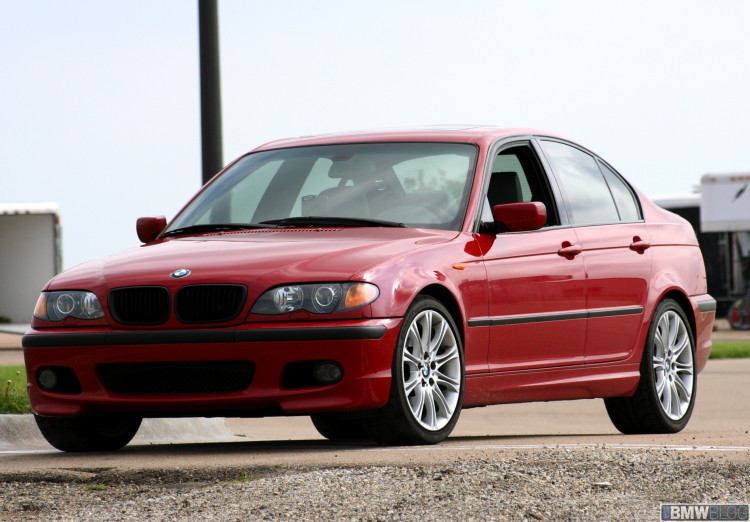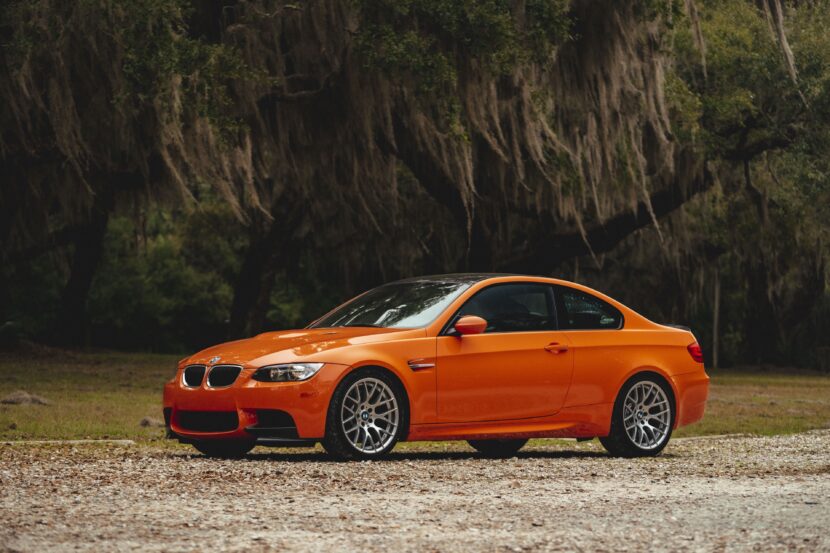Since its founding, BMW of North America has consistently sought to deliver performance-oriented cars tailored to the discerning tastes of U.S. enthusiasts. Even when pricing and federal safety and emissions rules made the task more daunting. Perhaps most surprisingly, the brand’s early shortcomings, despite the best of intentions, could have had them walking away from the US market completely. Instead, BMW worked smarter to find ways to bring American enthusiasts a slice of what our European friends were driving. The results have been nothing short of remarkable.
E36 M3 LTW — Fast on the Track, Hard to Sell
The E36 M3 Lightweight (LTW) was arguably BMW NA’s first real foray into performance cars built just for the US. After (successfully) bringing a pared-down version of the car to the US market at a lower price point (around $35,000), demand was such that the automaker decided to create a customer-racing version of the car. “We went to Munich and asked if they could build 100 cars with no radio, no air conditioning, aluminum doors instead of steel, a shorter final drive, etc.,” claims Erik Wensberg, then BMW NA’s M Brand manager. “They said no problem.” It launched at $49,000.
However, the LTW entered production a year too late, which meant it wouldn’t be ready for the start of 1995’s IMSA season. Eleven pre-production models were completed in the beginning of the year, followed by 115 for series production, but it was too late. Further complications arose from the fact that many of the LTW’s special performance parts weren’t DOT legal. Installing the race bits, like the wing or oil pan, voided the warranty. Wensberg shares insight: “The head of sales, Peter Moore, said, ‘Erik, the Lightweight’s a friggin’ wipeout. I’ve gotta put money in every trunk just to get rid of them. Don’t talk to me about special models anymore.’”
How the E38 740i Sport and ZHP Revived Enthusiast Interest
Not daunted from the “friggin’ wipeout” of the Lightweight, BMW began scratching their heads to find ways to bring performance models to the US masses. The next stop was the 1999 E38 740i Sport. “Munich thought we were crazy,” says Rich Brekus, then BMW’s Head of product Planning. “We ended up getting a 40 percent take rate on the 740i Sport.” Impressive numbers, and what paved the way for the next success story: the BMW E46 330i ZHP. Brekus: “When BMW M decided not to offer an E46 M3 sedan, we said, ‘Okay, we have to do something.’”
ZHP — which stands for “Z Performance Package” — instilled a little additional hustle into the regular 330i. While expensive — the option package commanded an additional $3,900 on a $35,495 car — value was immense. Cars equipped with ZHP got unique 18-inch wheels, grippy Alcantara upholstery on the steering wheel and seats, some extra horsepower, a lightened flywheel, a six-speed manual (unavailable on base cars), a quicker steering rack, and so much more. Revised suspension geometry and swapped components made it a better driving car, too. And, remember, the standard E46 was no slouch. Customers found the ZHP well worth the extra cost over a normal E46. The success of the ZHP option led to BMW extending the package to coupe and convertible models, too.
The ZCP Competition Package: Bringing CSL DNA to America
While ZHP was a great call, it didn’t bring the vaunted E46 M3 CSL to the US shores. The car’s high price (equivalent of $96,000 in-period) and the fact that it wasn’t street-legal led the brand to conclude it was unsellable in the States. But leaders in the brand were determined to bring some of the magic Stateside. Thus, Z Competition Package, or ZCP, debuted. Wheels borrowed from the CSL, beefier brakes, a faster steering ratio, an Alcantara-wrapped steering wheel, a special traction control setting, and other extras built value and made ZCP another successful venture. So successful, in fact, that we saw it on every M3 since then.
335is and Lime Rock Park Edition M3
We’ve heaped praise on the 335is before. It’s the spiritual successor to the ZHP, bringing plenty of unique parts to the E92 and E93 335i. The unique N54 engine separated it from its contemporaries, featuring new hardware and a new tune that made more power. A dual-clutch automatic replaced the traditional torque converter unit. Special badging and other options allowed BMW of North America to move 4,500 examples.
Finally, the last year of E92 M3 production saw the legendary Lime Rock Park Edition. M Brand Manager Matt Russell worked alongside Skip Barber to trick out an M3 fit for Lime Rock itself. M3 LRPs got a special lightweight exhaust (made from the same materials as the exhaust on the McLaren F1), unique front splitter and rear spoiler, and more. Fire Orange paint inherited from the Europe-only M3 GTS sealed the deal; today, the M3 LRP is one of the most prized special edition M3s ever offered. BMW continues to offer US-only editions like the M4 GTS. While often watered-down versions of what overseas markets get, it’s a heck of a lot better than nothing.
BMW of North America’s journey from cautious importer to enthusiast hero proves that the brand’s connection to its U.S. fans runs deeper than badges and marketing. These special editions are more than collector curiosities—they’re a love letter to those who demand more from their Ultimate Driving Machines.





